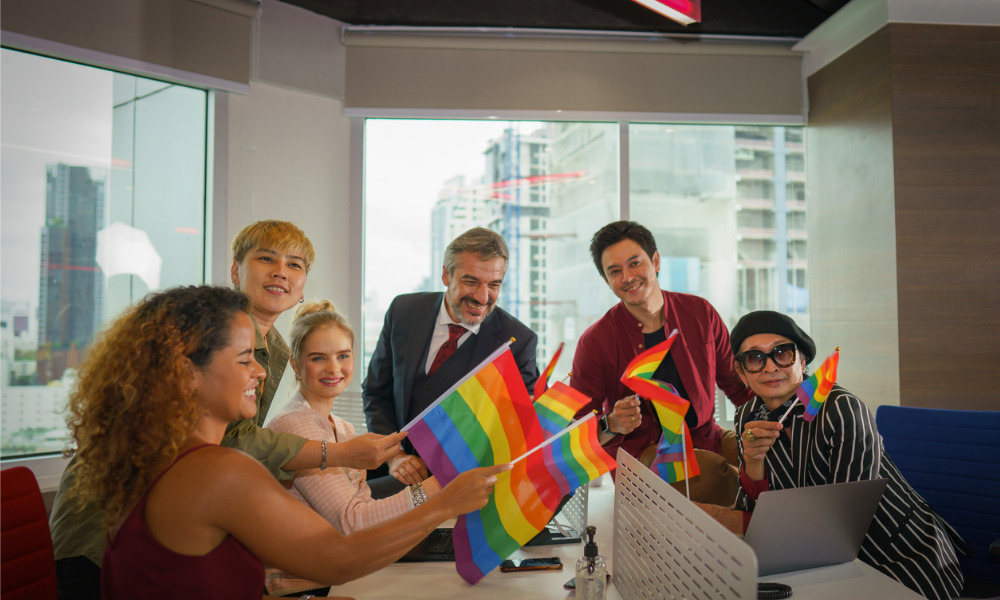
Do your words create a safe zone for LGBTQIA+ workers?

Allies of marginalised groups, such as the LGBTQIA+ community, play a critical role in creating a more open and welcoming workplace, but the commitment to stand shoulder to shoulder with the oppressed requires an understanding of their struggles. To engage in dialogue, allies can learn to use a more inclusive language in the workplace and beyond, suggests a gender equality advocate.
Fearing judgment, nearly half of employees who identify as LGBTQIA+ (46%) avoid coming out to their colleagues and managers, a report from the Human Rights Campaign found. The negative treatment of LGBTQIA+ workers often manifests in people’s everyday unconscious biases. And, worse, in homophobic and transphobic slurs.
Read more: Diversity in the workplace: How to lead as an ally
“Many LGBTQ+ people fear being fired, having to put up with homophobic and transphobic slurs, or feeling excluded,” said Matthew Winser-Johns, assistant director for LGBTQ+ programmes at the Galerstein Gender Center of the University of Texas at Dallas.
Indeed, our words can contribute to a toxic environment, but there is also power in the language of allyship. In fact, UT Dallas offers training and workshops for members of the campus community who want to know how to examine their own attitudes, behaviours, values and biases, and thus respond to the challenges that their LGBTQ+ friends and colleagues face.
The words that advocates and allies choose when connecting with their colleagues can help counter the sexist language that has persisted in the corporate world for decades – the sexist language that translates into micro aggressions and marginalisation.
Read more: How to create an inclusive workplace
How can allies adopt a language of inclusion, equality and respect? Here are some tips:
1) Never gauge a person’s identity and value based on their gender expression. “It’s crucial that we don’t ask people if they are in the LGBTQ+ community. Let them tell you if and when they are ready,” Winser-Johns shared. Allies should learn to respect colleagues who aren’t ready to come out.
2) Use inclusive/gender-neutral words. For example, instead of saying “my husband/wife,” you can opt for “my partner”.
3) Be open to how language is changing. The LGBTQIA+ movement can be credited with widening modern society’s vocabulary, especially when capturing the diversity and nuances of gender identities and experiences. Shifts in usage also often reflect changing worldviews. As such, allies can be proactive in educating themselves on how to affirm others.